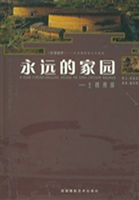“Ah, chère,” said the countess, “in my life, too, everything is not rose-coloured. Do you suppose I don’t see that, in the way we are going on, our fortune can’t last long? And it’s all the club and his good-nature. When we’re in the country we have no rest from it,—it’s nothing but theatricals, hunting parties, and God knows what. But we won’t talk of me. Come, tell me how you managed it all. I often wonder at you, Annette, the way you go racing off alone, at your age, to Moscow, and to Petersburg, to all the ministers, and all the great people, and know how to get round them all too. I admire you, really! Well, how was it arranged? Why, I could never do it.”
“Ah, my dear!” answered Princess Anna Mihalovna, “God grant that you never know what it is to be left a widow, with no one to support you, and a son whom you love to distraction. One learns how to do anything,” she said with some pride. “My lawsuit trained me to it. If I want to see one of these great people, I write a note: ‘Princess so-and-so wishes to see so-and-so,’ and I go myself in a hired cab two or three times—four, if need be—till I get what I want. I don’t mind what they think of me.”
“Well, tell me, then, whom did you interview for Borinka?” asked the countess. “Here’s your boy an officer in the Guards, while my Nikolinka’s going as an ensign. There’s no one to manage things for him. Whose help did you ask?”
“Prince Vassily’s. He was so kind. Agreed to do everything immediately; put the case before the Emperor,” said Princess Anna Mihalovna enthusiastically, entirely forgetting all the humiliation she had been through to attain her object.
“And how is he? beginning to get old, Prince Vassily?” inquired the countess. “I have never seen him since our theatricals at the Rumyantsovs’, and I dare say he has forgotten me. He paid me attentions,” the countess recalled with a smile.
“He’s just the same,” answered Anna Mihalovna, “so affable, brimming over. Greatness has not turned his head. ‘I am sorry I can do so little for you, Princess,’ he said to me; ‘I’m at your command.’ Yes, he’s a splendid man, and very good to his relatives. But you know, Natalie, my love for my boy. I don’t know what I would not do to make him happy. And my means are so scanty,” pursued Anna Mihalovna, dropping her voice mournfully, “that now I am in a most awful position. My wretched lawsuit is eating up all I have, and making no progress. I have not, can you conceive it, literally, not sixpence in the world, and I don’t know how to get Boris’s equipment.” She took out her handkerchief and shed tears. “I must have five hundred roubles, and I have only a twenty-five rouble note. I’m in such a position.… My one hope now is in Prince Kirill Vladimirovitch Bezuhov. If he will not come to the help of his godson—you know he is Boris’s godfather—and allow him something for his maintenance, all my efforts will have been in vain; I shall have nothing to get his equipment with.”
The countess deliberated in tearful silence.
“I often think—perhaps it’s a sinful thought,” said the princess—“but I often think: here is Prince Kirill Vladimirovitch Bezuhov living all alone … that immense fortune … and what is he living for? Life is a burden to him, while Boris is only just beginning life.”
“He will be sure to leave something to Boris,” said the countess.
“God knows, chère amie! These wealthy grand people are such egoists. But still I’m going to see him at once with Boris, and I will tell him plainly the state of the case. People may think what they choose of me, I really don’t care, when my son’s fate depends on it.” The princess got up. “It’s now two o’clock, and you dine at four. I shall have time to drive there and back.”
And with the air of a Petersburg lady, used to business, and knowing how to make use of every moment, Anna Mihalovna sent for her son, and with him went out into the hall.
“Good-bye, my dear,” she said to the countess, who accompanied her to the door. “Wish me good-luck,” she added in a whisper unheard by her son.
“You’re going to Prince Kirill Vladimirovich’s, ma chère?” said the count, coming out of the dining-room into the hall. “If he’s better, invite Pierre to dine with us. He has been here; used to dance with the children. Be sure you invite him, ma chère. Now do come and look how Taras has surpassed himself to-day. He says Count Orlov never had such a dinner as we’re going to have to-day.”















